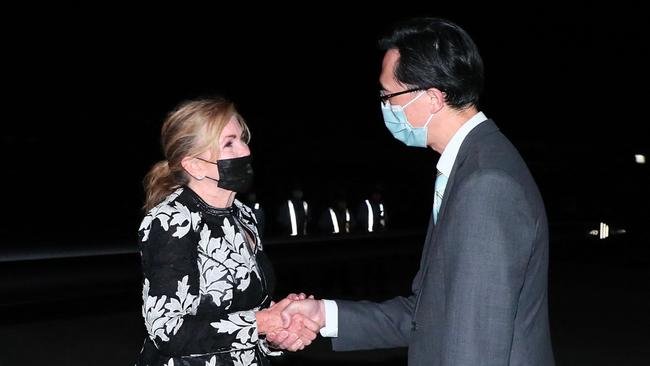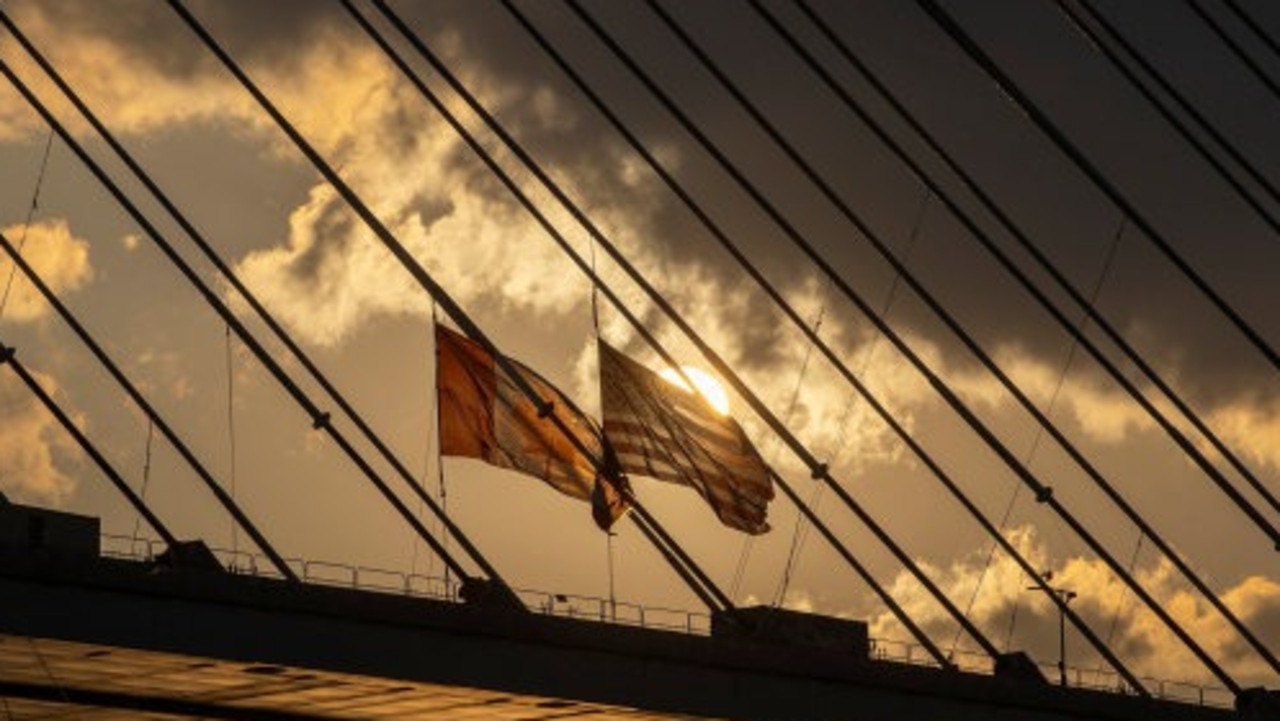Taiwan welcomes jaw-jaw sparked by John Bolton for strategic clarity to deter Xi Jinping’s China
Foreign Minister Joseph Wu tells The Weekend Australian there will be increasing co-ordination between Taiwan, Australia and the US over security policy, as Taipei welcomes the debate about ending “strategic ambiguity” to deter Xi Jinping’s China.

Taiwan has welcomed the debate about treating the liberal democracy as an independent country and indicated it is time to move to strategic clarity to deter a military attack ordered by Chinese President Xi Jinping.
Taiwanese Foreign Minister Joseph Wu on Friday praised Donald Trump’s former national security adviser John Bolton, who this week advocated for what would be a momentous change during a visit to Australia.
“John Bolton is a very good friend of mine and his support for Taiwan is always unwavering … that kind of support is always highly appreciated,” Mr Wu told The Weekend Australian in Taipei.
President Tsai Ing-wen’s most senior envoy said the debate about ending Washington’s more than 40-year-old policy of strategic ambiguity was a “challenging one” and he emphasised Taiwan did not want to meddle in America’s domestic policy debate.
But he indicated there would be increasing co-ordination between the US and Taiwan over security and defence policy.
“I can tell you very frankly that the communication or engagement between the two governments has already been very close. And as far as I can see, it (will) only (get) closer,” Mr Wu said.
Mr Bolton had been a longtime advocate for ending strategic ambiguity, arguing the policy – which makes it unclear whether the US would get involved in a Chinese attack on Taiwan – had “served its purpose”.
Japan’s influential former prime minister Shinzo Abe was the most prominent advocate for the US making it military commitment to Taiwan clear. Mr Abe – whose assassination in July rattled many Taiwanese – also led a policy change in Tokyo to formally recognise that “a Taiwan contingency is a Japan contingency”.
A senior Taiwanese government official acknowledged there were “pros and cons” to strategic clarity, but said Taipei “welcomed the debate”. Many in Canberra, Washington and beyond worry the shift could provoke a catastrophic military response from Beijing.
The Taiwanese official said those concerns understated the deterioration of Taiwan’s security environment.
“We are dealing with this authoritarian government that has this expansionist ambition … It’s time to think about how to stop them,” the official said.
Former US secretary of state Mike Pompeo – who has indicated he wants to run as the Republican presidential candidate in 2024 – is scheduled to visit Taiwan in late September to give a speech at an event organised by The Liberty Times, a newspaper supportive of Ms Tsai’s Democratic Progressive Party.
During his first visit to Taiwan, Mr Pompeo in a speech given in Taipei in March called for the US to formally recognise Taiwan as a sovereign nation separate from the People’s Republic of China.
“The United States government should immediately take necessary and long overdue steps to do the right and obvious thing which is to offer the Republic of China (Taiwan) America’s diplomatic recognition as a free and sovereign country,” he said, using Taiwan’s formal name.
Beijing years ago singled out Mr Pompeo as its most hated figure in the Trump administration after he gave a speech in July 2020 calling on the Chinese people to change the direction of the Communist Party.
His visit would be the most high profile since House of Representatives Speaker Nancy Pelosi’s historic trip at the start of August, which Beijing responded to with an unprecedented display of military force. The People’s Liberation Army practised blockade drills around Taiwan and blasted 11 ballistic missiles over and around the island.
On Friday, Republican senator Marsha Blackburn met with Ms Tsai in Taipei, continuing a stream of US congressional visits. Her trip closely followed a bipartisan delegation led by Democrat senator Ed Markey.
The Tsai government on Thursday signed off on a 14 per cent surge in defence spending in 2023. It was Taipei’s latest response to the PLA’s surging activity, which since Ms Pelosi’s visit has seen more than 320 Chinese warplanes cross the median line of the Taiwan Strait.
Mr Wu on Friday said Taiwan’s defence was its own responsibility: “If we are not determined to defend ourselves, we don’t have any right to ask others to help Taiwan.”
He again thanked the Australian government for condemning Beijing’s recent military aggression and said shared experiences of Chinese coercion had brought the two democracies closer together.
“Ever since China banned [it], we have been serving Australian red wine in the Ministry of Foreign Affairs,” he said.
“We think it’s a show of solidarity and we think it’s an important gesture to show to the Australians that we care about the situation they are in.”
“We will continue to look for ways that Taiwan and Australia can engage in more areas of co-operation: in trade, in people-to-people ties, in tourism … and security matters, a very important one,” Mr Wu said.



